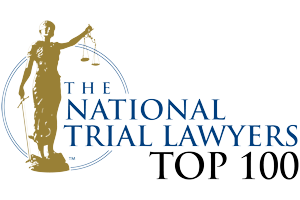for $4.95 Million Dollars.
COVID-19 / Coronavirus Workplace Injuries
FMLA – The New Families First Coronavirus Response Act
This is new legislation geared toward helping families impacted by the Coronavirus. It is subject to modifications but for now this is the law.
Employee Rights of Parents due to Coronavirus Related School Closures
Under the Families First Coronavirus Response Act, which goes into effect on April 2, 2020, parents of children who must stay home due to school closures may now be protected by the Family Medical Leave Act (FMLA) even if no one in the family is ill from the Coronavirus. You may be protected by this new provision of the FMLA if:
- Your employer has less than 500 employees; and
- You have been employed for at least 30 days.
A parent protected by this new provision of the FMLA is entitled to ten weeks of paid sick leave at two-thirds the employee’s regular rate of pay because the employee is unable to work because of a need to care for a child (under 18 years of age) whose school or child care provider is closed or unavailable for reasons related to the Coronavirus.
An employee that has worked less than 30 days for an employer may be entitled to two weeks of paid sick leave at two-thirds the employee’s regular rate of pay.
Rights of Employees Who May Have Contracted the Coronavirus
Employees that are unable to work because they are quarantined (pursuant to Federal, State, or local government order, or advice of a health care provider), and/or experiencing COVID-19 symptoms and seeking a medical diagnosis, may be eligible for two weeks (up to 80 hours) of paid sick leave at the employee’s regular rate of pay under the new provisions of the FMLA if:
- Your employer has less than 500 employees; and
- You have been employed for at least 30 days.
Employers with 25 or more employees will have the obligation to return any employee who has taken Emergency FMLA to the same or equivalent position upon the return to work. Employers with fewer than 25 employees are generally excluded from this requirement if the employee’s position no longer exists following the Emergency FMLA leave due to an economic downtown or other circumstances caused by the Coronavirus.
Part-time employees may be entitled to be paid based on the average number of hours the employee worked for the six months prior to taking Emergency FMLA leave. Employees who have worked for less than six months prior to leave are entitled to the employee’s reasonable expectation at hiring of working the amount of hours that is equivalent to the average number of hours the employee would normally be scheduled to work had he/she not taken FMLA leave.
Rights of Employees Caring for a Family Member With Coronavirus
Under the new provisions of the FMLA if an employee is unable to work (or unable to telework) the employee may qualify for expanded leave under the FMLA if the employee:
- Is subject to a Federal, State, or local quarantine, or isolation order related to Coronavirus;
- Has been advised by a health care provider to self-quarantine related to Coronavirus;
- Is experiencing COVID-19 symptoms and is seeking a medical diagnosis;
- is caring for an individual subject to an order described in (1) or self-quarantine as described in (2);
- is caring for a child whose school or place of care is closed (or child care provider is unavailable) for reasons related to Coronavirus; or
- Is experiencing any other substantially-similar condition specified by the Secretary of Health and Human Services, in consultation with the Secretaries of Labor and Treasury.
For reasons (1)-(4) and (6): A full-time employee is eligible for 80 hours of leave, and a part-time employee is eligible for the number of hours of leave that the employee works on average over a two-week period.
For reason (5): A full-time employee is eligible for up to 12 weeks of leave (two weeks of paid sick leave followed by up to 10 weeks of paid expanded family & medical leave) at 40 hours a week, and a part-time employee is eligible for leave for the number of hours that the employee is normally scheduled to work over that period.
Calculation of Paid Leave
For leave reasons (1), (2), or (3): employees taking leave are entitled to pay at either their regular rate or the applicable minimum wage, whichever is higher, up to $511 per day and $5,110 in the aggregate (over a 2-week period).
For leave reasons (4) or (6): employees taking leave are entitled to pay at 2/3 their regular rate or 2/3 the applicable minimum wage, whichever is higher, up to $200 per day and $2,000 in the aggregate (over a 2-week period).
For leave reason (5): employees taking leave are entitled to pay at 2/3 their regular rate or 2/3 the applicable minimum wage, whichever is higher, up to $200 per day and $12,000 in the aggregate (over a 12-week period).[4]
These are all new rules. If you feel that your employer has violated any of your rights under these rules or you have questions about your rights under these rules then give us a call at no charge to you to discuss your rights. We may be able to file a claim in court to obtain justice for you if your rights are violated.
Discrimination or Retaliation and Wrongful Termination Because of or Related to the Coronavirus
You have rights!
Under the law, there are various protections for employees that are terminated for something in connection with the Coronavirus. One such law is that if an employee can show that he/she was terminated in retaliation for engaging or participating in activities that are protected by public policy then that termination is wrongful.
Thus, for example, under the federal OSHA law an employer is required to furnish to each of its employees, employment including a place of employment that is free from recognized hazards that are causing or are likely to cause death or serious physical harm to its employees. As a result, employers must comply with occupational safety and health standards promulgated under OSHA law. For instance, OSHA mandates that employers are obligated to provide their workers with PPE (personal protective equipment) needed to keep them safe while performing their jobs. The types of PPE required during aCOVID-19 outbreak will be based on the risk of being infected with SARS-CoV-2 (Coronavirus), while working and job tasks that may lead to exposure. Workers, including those who work within 6 feet of patients known to be, or suspected of being, infected with Coronavirus, and those performing aerosol-generating procedures, need to use respirators.
Can an employee refuse to come to work because of fear of infection?
Employees are entitled to refuse to work if they believe they are in imminent danger. Section 13(a) of OSHA defines “imminent danger” to include “any conditions or practices in any place of employment which are such that a danger exists which can reasonably be expected to cause death or serious physical harm immediately or before the imminence of such danger can be eliminated through the enforcement procedures otherwise provided by this Act.” OSHA discusses imminent danger as where there is “threat of death or serious physical harm,” or “a reasonable expectation that toxic substances or other health hazards are present, and exposure to them will shorten life or cause substantial reduction in physical or mental efficiency.”
The threat must be immediate or imminent, which means that an employee must believe that death or serious physical harm could occur within a short time, for example, before OSHA could investigate the problem. Requiring travel to China or requiring employees to work with patients in a medical setting without personal protective equipment at this time, may rise to this threshold.This guidance is general, and employers and employees must determine when this unusual state exists in your workplace before determining whether it is permissible for employees to refuse to work.
Whistleblower Protection
In addition to the above, the State of Illinois offers whistleblower protection for employees in a hospital and other employees who are discriminated or retaliated against in the terms and conditions of their employment who:
- discloses to the nursing staff supervisor or manager, a private accreditation organization, the nurse’s collective bargaining agent, or any regulatory agency any activity, policy, or practice of a hospital that violates certain statutes or any law or rule or that the employee reasonably believes poses a risk to the health, safety, or welfare of a patient or the public.
- Initiates, cooperates, or otherwise participates in an investigation or proceeding brought by a regulatory agency or private accreditation body concerning matters covered by this Act or any other law or rule or that the employee reasonably believes poses a risk to the health, safety, or welfare of a patient or the public.
- objects to or refuses to participate in any activity, policy, or practice of a hospital that violates this Act or any law or rule of the Department or that a reasonable person would believe poses a risk to the health, safety, or welfare of a patient or the public.
There are other whistleblower protections for employees not in a hospital, who report dangerous or unsafe practices that relate to the Coronavirus or other significant workplace hazards.
If you or any family member believe that your rights have been violated give us a call at no charge and we can discuss obtaining justice for you.
Rights of Employees to Take Action Against Unsafe Working Conditions, Including the Coronavirus
The National Labor Relations Act (NLRA) provides federal legal protections for private sector employees to join together, with or without a union, to improve working conditions. Section 7 of the NLRA protects employees who engage in Protected Concerted Activity (PCA). Concerted activity is when two or more employees take action for their mutual aid or protection regarding terms and conditions of employment. A single employee may also engage in protected concerted activity if he or she is acting on the authority of other employees, bringing group complaints to the employer’s attention, trying to induce group action, or seeking to prepare for group action.
Examples of Protected Concerted Activities Related to COVID-19
Talking with one or more co-workers about working conditions, circulating a petition asking for health and safety provisions, participating in a concerted refusal to work in unsafe conditions, openly calling for paid sick leave, and joining with co-workers to talk directly to your employer or to a government agency about problems in your workplace.
What Does This Mean for You?
As an employee, you have federal legal protection under the NLRA to take action with your fellow employees to address workplace safety relating to the Coronavirus, otherwise known as COVID-19, or any other workplace safety issue. Your employer cannot discharge, discipline, or threaten you for protected concerted activity.
If you believe your rights have been violated for participating in concerted activities at your workplace relating to the Coronavirus or COVID-19, we have attorneys available to speak with you.



